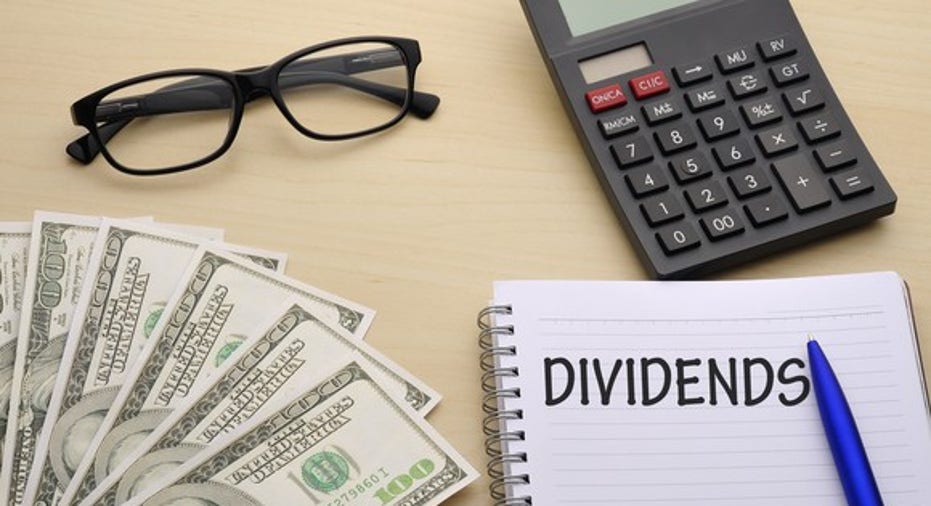Philip Morris International Disappoints Dividend Investors

Dividend investors always like it when a stock they own decides to increase its quarterly payout, and some companies are predictable in when they'll typically announce dividend hikes. Philip Morris International (NYSE: PM) has done a good job of giving its shareholders higher dividend payouts year in and year out since it become an independent publicly traded stock, but the pace of Philip Morris' dividend growth has slowed recently.
As expected, Philip Morris announced today that it would increase its quarterly dividend, lengthening its streak of consecutive annual boosts. Yet the size of the dividend increase was underwhelming and shows the continued pressure that Philip Morris faces. Let's look at what Philip Morris did, and why some investors aren't all that happy about it.
Image source: Getty Images.
What Philip Morris did with its dividend
On Wednesday morning, Philip Morris announced that its board of directors had approved an increase in the company's regular quarterly dividend. Going forward and starting with the dividend to be paid in October, Philip Morris shareholders will receive $1.04 per share in cash every quarter. That marks a 2% increase from its previous payout of $1.02 per share, and it matches the 2% boost that Philip Morris made in 2015.
To understand why investors might be disappointed with a dividend increase, it's useful to look at the size of previous increases. In the table below, you can see exactly how much Philip Morris has rewarded shareholders throughout its history.
Data source: Philip Morris investor relations.
From that perspective, it's easy to understand why income investors might be troubled about the downward trend in Philip Morris' dividend growth.
For its part, Philip Morris' board didn't reveal any of its thought process in determining the size of the increase. But those who've followed the stock over the past couple of years can guess the nature of its deliberations. Disruptions in the foreign currency markets has led to a dramatic increase in the value of the U.S. dollar against many major currencies in which Philip Morris does business, and that has turned what would have been substantial growth in sales and net income in currency-neutral terms into sluggish, and even stagnant, results for the tobacco giant in dollar terms.
Staying conservative
Some had hoped that Philip Morris might be more generous with its dividend because of recent signs that the dollar's strength might be moderating. In its most recent quarter, the downward impact on earnings from foreign currency impacts was less than half what it had been the previous quarter. Philip Morris boosted its earnings guidance for the year, citing the more favorable foreign currency market environment.
Yet more recent macroeconomic trends suggest that the dollar might start to strengthen again. Many fear that the Federal Reserve will prove to be more aggressive in raising interest rates than previously expected, and a rise in rates in the U.S. could draw more foreign capital from other countries. That, in turn, would likely renew the rise in the dollar.
It's probably because of that uncertainty that Philip Morris took the step of minimizing its dividend increase for 2016. The company noted that, since 2008, its dividend has risen by a total of 126%, which works out to an annual average boost of nearly 11%. Moreover, based on its most recent earnings guidance, a $1.04 per-share quarterly dividend works out to a payout ratio of between 91% and 93%. While that's not quite down to the level that Philip Morris targets, it's a step in the right direction.
Philip Morris chose to make a modest dividend increase, lengthening its streak to nine straight years of boosts, but disappointing some investors who had hoped for a larger increase. Nevertheless, the more important question going forward is whether the dollar's strength will keep putting pressure on earnings and revenue growth. If it does, then future dividend increases could be equally disappointing.
A secret billion-dollar stock opportunity The world's biggest tech company forgot to show you something, but a few Wall Street analysts and the Fool didn't miss a beat: There's a small company that's powering their brand-new gadgets and the coming revolution in technology. And we think its stock price has nearly unlimited room to run for early in-the-know investors! To be one of them, just click here.
Dan Caplinger has no position in any stocks mentioned. The Motley Fool has no position in any of the stocks mentioned. Try any of our Foolish newsletter services free for 30 days. We Fools may not all hold the same opinions, but we all believe that considering a diverse range of insights makes us better investors. The Motley Fool has a disclosure policy.



















